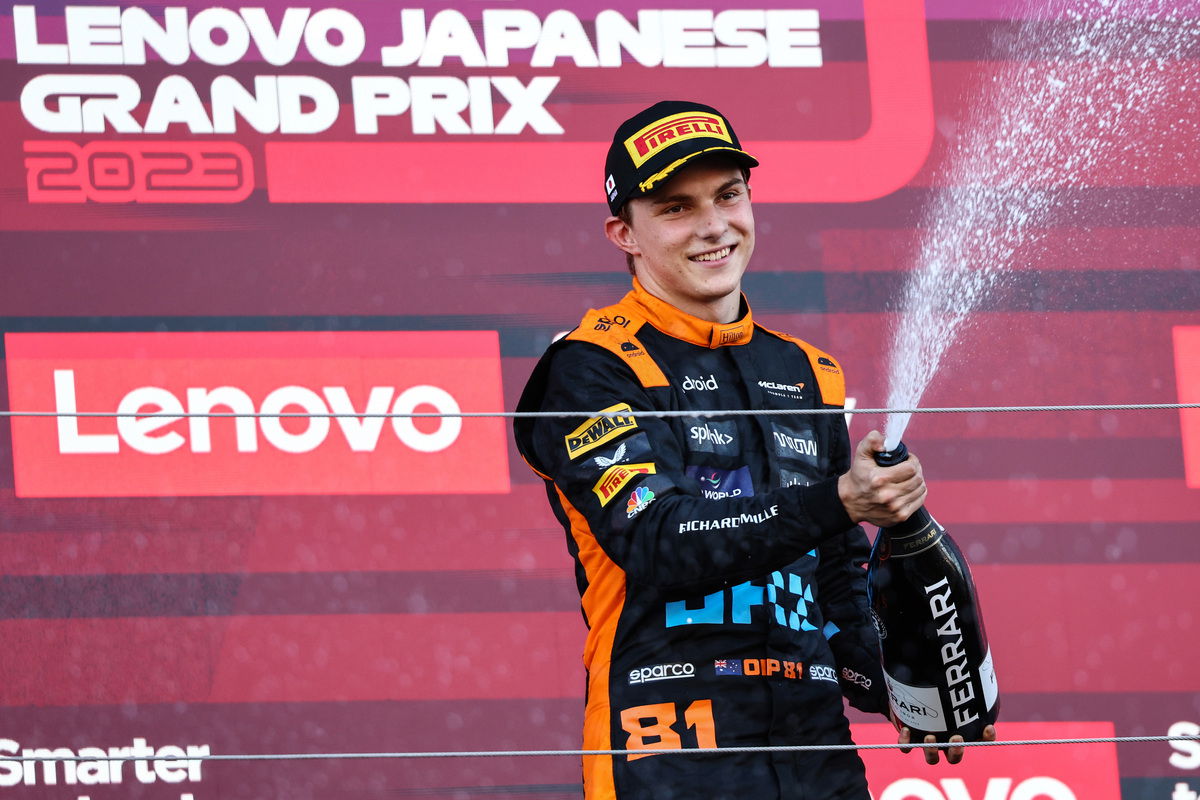

Piastri won titles in Formula Renault, Formula 3, and Formula 2 in successive seasons in a meteoric to the sport’s peak.
In his rookie season, he won an F1 Sprint, having started on pole, and stood on a grand prix podium twice, including at the Japanese Grand Prix.
The daunting Suzuka circuit is a favourite among drivers because of the challenge it presents and the fact it punishes even the smallest of errors.
Piastri finished third on debut in Japan, trailing the all-conquering Max Verstappen and his McLaren team-mate, Lando Norris, to the chequered flag.
But while most would consider that result a success, Piastri doesn’t view it in the same light.
“I always try and focus on the next session, or the next weekend, and trying to maxmise that,” he told Speedcafe.
“You always leave a weekend knowing [if] we’ve done a good job.
“Japan, for example, we had clearly the second quickest car, so getting on the podium, once [Sergio] Perez didn’t finish, that was kind of the bare minimum.
“Whereas if you’ve got the third or fourth quickest car and you manage to get a podium, the result is the same, but the feeling of how you’ve achieved it is completely different.”
It’s achieving the results that are achievable that Piastri remains focused on; session by session, event by event.
There’s still much to learn, and while there have been positive signs of progress already in 2024, there will be instances where his lack of experience counts against him.
For Piastri to deliver strong results, the car too must do its job. On any given day, only one can win.
Since the inception of the world championship in 1950, a total of 776 drivers have started a grand prix.
Of those, 113 have won races, but only 34 have won the world championship, less than five percent.
Having beaten seemingly impossible odds just to reach F1, there’s a greater than 95 percent chance a driver will never win a world championship.
Knowing that is why the 22-year-old seldom dreams about winning grands prix or championships despite them being closer now than they’ve ever been.
“I rarely dare to dream about it,” he confessed.
“In Formula 1, this sport is still very dependent on both car and driver – a lot of car.
“If you’re in the slowest car on the grid, you’re not going to win a race or a championship. It’s as simple as that.
“No matter how hard you try or want it, it’s not going to happen for you.
“So trying to wish those things or dream about them can very easily become demoralising instead of constructive.”
Hence Piastri is looking to master what he can control in the hope that, should he ever be in the position, it will deliver him a world title.
“I’ll get much more pride and happiness out of focussing on those kinds of things,” he admitted.
“If you can finish third, go ahead then, go out and finish third.
“But if you’ve clearly not got the car to win a race, I don’t think there’s that much use thinking about it.
“More than anything, you can always judge yourself, very easily, or I find it very easy, to judge whether you’ve had a good weekend or a bad weekend, and whether you’ve gotten the most out of what you’ve got,” he added.
“Japan, my first podium, certainly was not in my top three [performances of the season] and probably not top five races of the year, and it was one of my best results of the season.
“Sometimes the results don’t always tell the full story of how I feel the weekend’s gone.”




















Discussion about this post